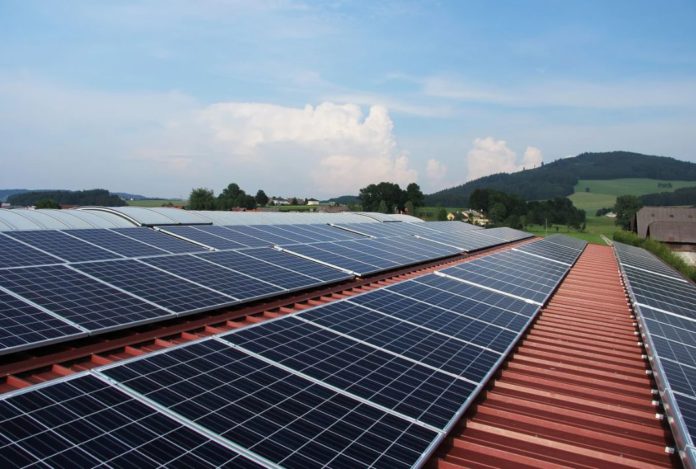In this news article, Phil Thompson, CEO of Balance Power, outlines why he believes we can secure British agriculture with the support of renewables.
The last year has presented an upward battle for farmers and landowners, to say the least.
They have had to grapple with sky-high fertiliser, fuel and energy prices with little to no support from the government, which failed to insulate the sector following the loss of post-Brexit subsidies.
With this in mind, it was ambitious to think that last month’s NFU conference would be a resounding success and bring the Conservative’s “green hedge” voter base back into the fold.
And a tall order it was. DEFRA Secretary Therese Coffey’s speech was heralded as a “slow-motion tractor crash”, and the government was accused by the opposition of having “given up on farmers”.
The time to support farmers is now
A year on from the Russian invasion of Ukraine, farmers have been plagued with escalating costs, and supply-chain issues, all the while dealing with the fallout from the loss of EU subsidies post-Brexit. At the conference, NFU president, Minette Batters, announced that the “clock is ticking” for the government to support farmers.
Yet nothing of substance has materialised since, and in particular, many in the food production space are not being recognised as high-intensive energy users, meaning they, therefore, are not eligible for some of the energy subsidies.
ELMs
Additionally, the announcement of the Environmental Land Management schemes (ELMs) in January, made up of the Sustainable Farming Incentive, Landscape Recovery Scheme, and the Countryside Stewardship scheme, was promising as it provided some much-needed clarity.
However, it has already come under fire for not accommodating all types of farming and has especially been accused of excluding hill and lowland common farmers.
It’s clear that British agriculture is at an important juncture, and we must insulate the entirety of the industry if we’re to futureproof it from further volatility.
Making room for renewables
Farmers can better establish financial security by hosting a clean energy project on their land.
There is a common misconception that this will take away from the land required for traditional practices; however, this is not the case.
If the UK were to be powered entirely by renewable energy, only 2.1% of the total landmass would be required.
Projects, such as ground-mounted solar, can often sit alongside traditional farming practices allowing livestock to graze and insects and wildlife such as birds, hedgehogs and field mice to thrive.
Conveniently, this complements both the need to boost biodiversity and clean our energy system, proving the synergy of farming and renewables.
Land diversification and the requirement to accommodate clean energy projects will always be integral to a sustainable future – both for the UK itself and the agricultural industry.
Farmers can actively be a part of the solution whilst also benefitting themselves.
Future of farming
Farmers’ ability to feed the nation will be compromised if their situation doesn’t change financially.
As mentioned, farmers are facing record-high prices across the board, from fuel to fertiliser, and this is without being recognised as high-energy users.
As farmers face new challenges with our volatile economy and rapidly changing climate, there are new opportunities to consider to lock in reliable income for land.
Per year, a typical crop yield can bring in an average of £1,500 per hectare.
Solar projects, which sit on grade 3, 4 or 5 land, can provide comparable yields, whether in place of farming or in parallel with more traditional crop production and grazing.
Beyond solar, farmland also is suitable for battery storage projects, an essential tool as we move away from volatile international gas markets and towards more renewable sources of energy.
Not only will this help financially future-proof farming, but it will also ensure a sustainable future for the sector.
A unique approach
Farmers in the UK will likely, at some point in the last few years, have been approached by a renewable energy developer and, therefore, will be aware in some capacity of the financial benefits they offer.
In some instances, they will have been told their land is not suitable for hosting clean energy.
However, taking a truly tailored approach when assessing the type of renewable option is essential to ensure all avenues have been explored.
As mentioned, those in the food production space, who have high consumption and are struggling to meet demand due to supply chain issues or high energy prices, could be suited to a behind-the-meter solution.
These offer on-site generation that is connected directly as opposed to connected to the grid, which in turn creates less reliance on large, expensive energy companies.
A commitment to finding the correct solution requires agility from developers and cooperation from farmers.
In lockstep, we can ensure the stability of our food and energy system.
See more farming news on That’s Farming





